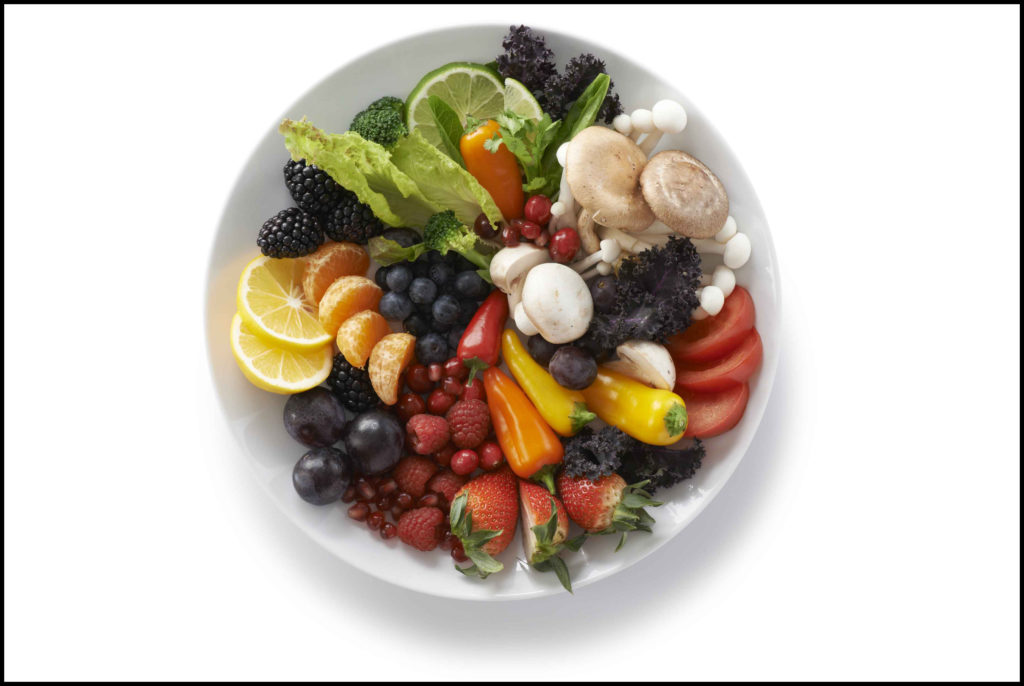
It’s hard to miss the headlines these days about the newest darling of the research world: gut bacteria. These microscopic cells reside in the human intestine in a big way, in the trillions by recent estimates. A growing body of research shows that keeping this bacterial community in proper balance has serious health benefits from a strong immune system to a positive mood to a healthy body weight and beyond. This balancing act fascinates me for two reasons. Not only does it have a profound potential for human health, but it adapts, often rapidly, to simple dietary changes. So we can add one more advantage to making smart choices about the foods and supplements we consume. We can dramatically change our gut bacteria– and health – for the better.
The basics of gut bacteria
All species of bacteria in the human gut fall into one of two functional groups. Some adhere to the delicate mucous cells that line your intestines and are more closely associated with immune health. Others float freely in the lumen metabolizing compounds such as carbohydrates and amino acids, synthesizing essential vitamins, and eventually ending up in your stools. Most of this bacterial soup is in your large intestine, and researchers describe it as one of the most densely populated microbial ecosystems … on the planet.
Each person has a unique makeup of gut bacteria. It’s based on several factors. Age plays a role: the gut bacteria of children differs from that of adults. The use of medications can play a role. Gender, activity level, body weight and stress level also play a role. But, by far, the most influential factor on the health of your gut bacteria, especially its composition and diversity, is your diet.

Analyzing the global gut, one person at a time
It can be a research challenge to pinpoint how dietary habits affect gut bacteria, but one project, the Human Food Project, is tackling this in a clever way.
This project is a huge undertaking with the goal to analyze the gut bacteria in people around the world. The researchers bill it as a crowd-funding project with citizen scientists. I like that. For a small fee, an ordinary citizen can use a special kit to ship a stool sample along with answers to diet and lifestyle questions to a designated research lab where the sample is analyzed. In return, they receive a report with their unique gut bacteria makeup and how it compares to others. To date, this research endeavor includes the American Gut, British Gut, Australian Gut, and most recently, the Asian Gut Projects.
Results show that overall health is associated with greater diversity in gut bacteria. Eating a diet rich in a variety of vegetables, fruits and other plant foods increases this diversity as does eating more fermented foods such as kefir, kimchi or sauerkraut. What’s more, shifting to these dietary patterns – more plant foods, more fermented foods – can shift the makeup and behavior of your gut bacteria in as little as a few days.
Making a good gut better
Eating a variety of plant foods and fermented foods is a great habit to help maintain a healthy balance of gut bacteria. Stanford University’s Justin and Erica Sonnenburg at the Sonnenburg Lab do a great job explaining how all this works in their book The Good Gut (along with some great recipes and menu ideas.)
Yet, with today’s hectic lifestyles, it’s not easy making the best food choices day in and day out. That’s why a daily supplement is a great habit, it’s like dietary insurance. Adding a probiotic to your regular supplement routine not only helps feed your gut with the probiotics it needs to stay balanced, it helps you thrive. To me, that’s the real headline.
Here’s to a healthy gut!
![]()
P.S. Don’t forget you can subscribe to our RSS feed to have blog posts delivered right to your inbox.
